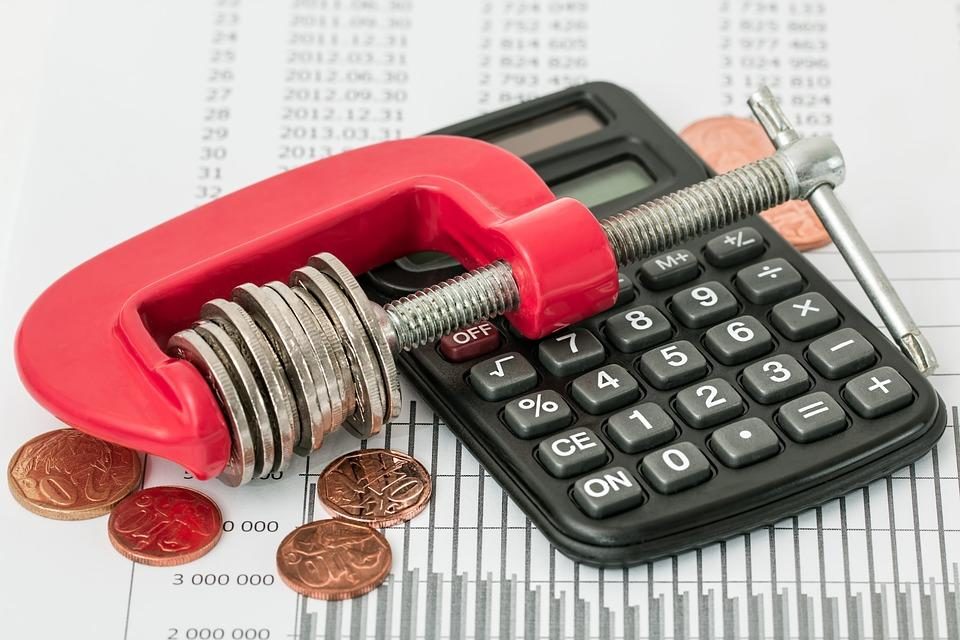7 Simple Steps to Manage a Household Budget
Does your stomach drop when you hear the word ‘budget’?
Strong financial management is a priceless life skill. But not everyone feels comfortable making decisions about money.
Many people avoid budgeting because they’d rather not have to think about where or how to spend their money. While some try and secure loans from family members. Here’s the simple truth though – if you are not budgeting, you might just end up in a financial mess. And if you end up using credit cards to bail you out, well things can go from bad to worse…
Creating a budget is a ticket to financial happiness.
And while budgeting may seem scary, the sooner you get started, the sooner you’ll be able to have financial freedom to spend money on the things you love.
A budget will help you plan your financial life in the short and long-term. That means every dollar has a role to play.
So, if you’re ready to take control of your finances for good, here are 7 simple steps to manage a household budget.
Step #1 – Write Down Your Total Monthly Income
How much do you make per month?
Write that down and burn the figure into your mind.
You should also note that most of your expenses are billed per month, so figuring out how much you have to spend each month is the easiest way to start budgeting.
If you have more than one source of income, write the totals down to get a rough estimate of your total income each month.
Step #2 – Write Down Your Fixed Expenses
Next, you need to identify your essential expenses and write them down.
Here you need to identify your fixed bills such as:
- Mortgage
- Rent
- Credit card payments
- Car payments
- Insurance payments
One this is done, you need to identify the monthly expenses that are always the same. These are known as your fixed expenses.
Make sure you note down all the expenses to avoid missing out on anything that will eat into your monthly expenditure.
Step #3 – Write Down Your Variable Expenses
Your variable expenses are the bills that you know you have to pay each month. However, the amount varies.
These may include:
- Food
- Phone payments
- Utilities
- Gasoline
- Household expenses
- Public transportation
- Clothes
- Shoes
You can figure out the average amount for these expenses through using past payments and using these as the base amount for your budget.
According to plumbing expert Brian Thurtell, you should also factor in home repairs. He explains “while home repairs are not always a monthly cost, they should be factored in to give a sense of where extra money will need to go. This figure may change if your property requires constant upkeep compared to one with few structural problems.”
Step #4 – Write Down Your Non-Essential Expenses
With your budget becoming clearer, you’ll have to identify your non-essential expenses and list down a reasonable amount for each of them next.
These may include:
- Eating out
- Entertainment
- Hobbies
- Any other ways you might spend money during the month
Take a look at how you spend money for these expenses for the previous month and use that as your guide.
By this stage you may notice a trend of spending on items that you could live without.
It’s the little things that often derail budgets, not the big purchases. Are you spending a ton of money on eating out? Or maybe you’re always taking the train when you could walk to work?
These small things can add up and make a big difference on a monthly household budget.
Step #5 – Find The Extras
The ‘extra’ expenditures can really impact your monthly spending.
Tip: Consult your credit card statements or any other accounting reports to find extra outgoings.
These may include:
- Maintenance and repair
- Vacations
- Gifts
- Holidays
These items won’t necessarily recur each month. But you need to identify how much you pay for them per year. You can divide that amount by 12 to identify how much you need to save each month to cover the expense.
Step #6 – Add Up The Totals
With all your homework done, it’s time to bust out the calculator.
Add up all the expenses and subtract the total amount from your net income.
This will let you know your total money in and money out, broken down by essentials and non-essentials.
With luck, you will have a little money left over from the income. However, if your expenses are more than your income, you’ll be running at a personal loss. Don’t panic yet, this is the start of your budgeting process.
Step #7 – Cut The Extras
If you’re spending more than your income, you need to go back to your list of monthly expenses and identify those you can cut.
Start with the non-essential expenses. You need to identify the items to remove from this list altogether.
The nutrition team from Get A Healthy Life say one of the simplest money saving hacks is to cut back on eating out. They note “cutting out restaurants completely may do more harm than good. If your quality of life suffers, you’ll only end up spiraling into poor financial choices. Instead, change your spending habits when you eat out. Can you share a meal? Have less starters? These tweaks can let you dine out, without spending big.”
Or is there a gym membership you’re paying for but not using? (don’t worry, we’ve all been there).
Go through the whole list and make the necessary adjustments until your total expenses are less than your monthly income.
Following these steps isn’t a one-time thing.
Try not to set overly high standards at first. Check your spending everyday for the month following your budget.
If you have deviated from the budget you should write it down and find ways to improve the next month. If you see you haven’t hit your targets, don’t consider it a failure. Celebrate the small wins and slowly build your financial confidence up.
Are you ready to save money?
With this simple spending and budgeting tips, you’ll finally be on your way to taking charge of your money.
Even if it’s only the first step in a new attitude to your finances, just writing things down means that you have started making a difference. So give yourself a pat on the back and celebrate (just no giant purchases that will ruin all your hard work!).
Are you struggling with your personal finances right now? Chat to the team at Financial Advice New Zealand for professional help and support.
____________________________________________________________________________
Author Bio:
Jessica Stewart is an Australian writer and a Business Administration student living in Sydney. She has extensive knowledge of financial data and project management topics. Jessica has a passion for photography and when she’s not studying or writing, you’ll find her outdoors capturing still shots of perfect scenery.








